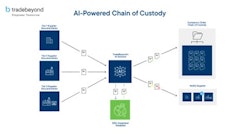Two of the biggest retailers both announced last week that they are taking the "sustainable" food movement mainstream, with announcements from global giant Walmart and Minnesota-based Target both saying they will start offering organic ... and affordable sustainable food products in their retail stores.
WalMart announced a new line of organic food, to be sold under the “Wild Oats” label, at prices comparable with conventionally-grown products. While rival Target also announced plans to roll out 120 new items under a new category label called “Made to Matter.” This article/opinion piece from U.S. News goes on to speculate that this may be the "turning point" that makes the sustainable food movement legitimate.
Until recently, most companies that made sustainable products focused on upper-income consumers: people with discretionary money to spend on premium-priced organic food, specialty apparel and other niche products. Sustainable products were seen basically as luxury goods, whether made with new energy-efficient technology, or fair trade sourcing, or organic farming methods,
The focus on high-end consumers was inescapable until recently because most sustainable products were made by smaller companies and in smaller batches. Economies of scale were lacking. The most efficient production methods were beyond the reach of many undercapitalized entrepreneurs making sustainable products.
That all changed this week with announcements from WalMart and Target. These giants embraced sustainability as an important source of revenue growth and they are bringing their huge scale and financial power to bear.
WalMart announced a new line of organic food, to be sold under the “Wild Oats” label, at prices comparable with conventionally-grown products. This broad new line, with more than 100 items, is sure to undercut existing price points in the industry. A six ounce can of tomato paste will be sold for 58 cents, for example, and a 32 ounce can of chicken broth will be priced at $1.98 – both a third cheaper than existing national brands of organic food.
Meanwhile, arch-rival Target announced plans to roll out 120 new items under a new category label called “Made to Matter.” Target says it is working with 17 established brands, including leaders with credibility in sustainable products such as Seventh Generation, to source new and revised products that it can sell on an exclusive basis for six months.
Why are these large public companies, which pay extreme attention to the financial bottom line, embracing sustainable products and products? Three reasons are clear: customer demand, cost reduction and changing public expectations.
To read more, click HERE.






























